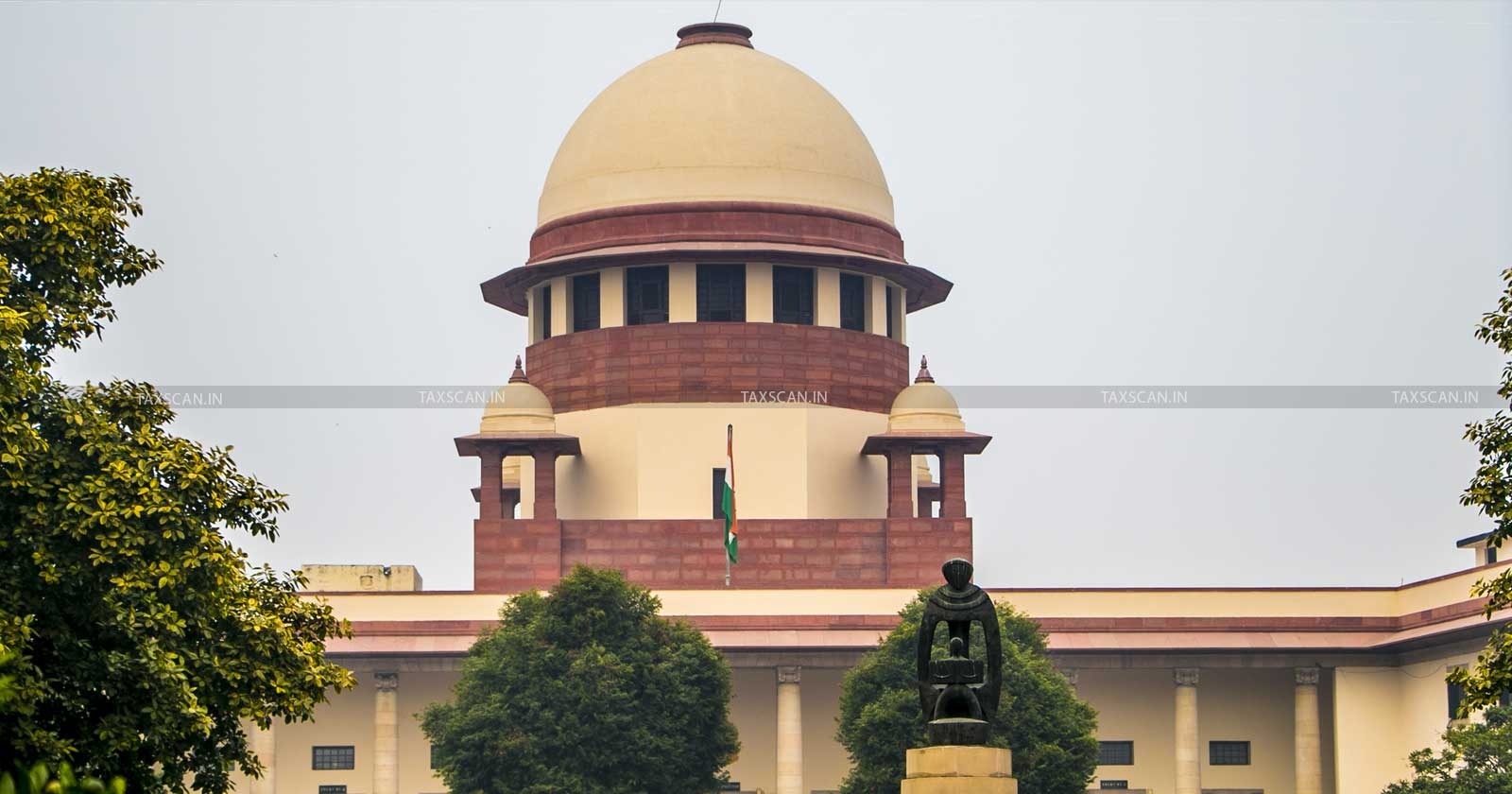2002 Amendment to CST Act Won't Affect Accrued Rights: Supreme Court [Read Judgement]
The bench held that the requirement of submission of Form 'C' and 'D' would apply prospectively after 11.05.2002 i.e., after the Finance Act of 2002

2002 Amendment – 2002 Amendment To CST Act – CST Act – Accrued Rights – Rights – Supreme Court – taxscan
2002 Amendment – 2002 Amendment To CST Act – CST Act – Accrued Rights – Rights – Supreme Court – taxscan
The Supreme Court held that even though after the amendment of Section 8(5) of the Central Sales Tax Act, the State Government's right to grant exemption from tax has ceased to exist, the accrued right of assessees won’t affect. It would not apply to the cases where an absolute exemption has already been granted.
“The amended Act nowhere stipulates that rights previously accrued stand nullified or all previous exemptions stand cancelled or revoked”, the division bench of Justices P.S. Narasimha and Pankaj Mithal ruled.
Prism Cement Limited & Anr., the assessee/respondent was aggrieved, among other things, by the three trade circulars issued by the Commissioner of Sales Tax, Mumbai for revising the assessments. In the impugned circulars, the respondent was asked to refund the exempted portion of the tax which was provided under the Package Scheme of Incentives. The notices were issued on the ground that the respondent has failed to submit declarations in Form 'C' or 'D', as required under Section 8(4) of the Act.
Become PF & ESIC Pro: Basic to Advance Course - Enroll Today
The scheme offered a partial or complete exemption from paying sales tax. Importantly, the respondent received the Eligibility Certificate since they qualified for tax exemption. However, when the Finance Act of 2002 revised the CST Act, things changed. In the public interest, this clause gave the State Government the authority to exclude interstate sales and commerce from taxes entirely or in part. In addition, Section 8(4) of the Act was dispensed, which made this exemption contingent upon the provision of Form 'C' or 'D'. Although the State Government still has the authority to grant an exemption in the public interest following the change, doing so is contingent upon meeting the standards outlined in Section 8(4).
The Court clarified that the amendment is prospective in nature. Thus, such restrictions would not apply retrospectively to cases where absolute exemption was permitted prior to the amendment. The Court pointed out that the benefit granted to the respondent was under the 1993 scheme; thus, the benefit was still available.
Read More:Unlocking GST: Understanding the E-Way Bill Requirement for Imported Goods
Become PF & ESIC Pro: Basic to Advance Course - Enroll Today
The bench relied on MRF Ltd. Kottayam vs. Asstt. Commissioner (Assessment) Sales Tax and Others, where it was held that premature deprivement of the benefit of exemption is arbitrary the State Government cannot issue a notification to take away such a right. Further held that the law is settled that if a substantive right has accrued to a person, it cannot be taken away unilaterally without notice or an opportunity of hearing to the said person. Thus, after the amendment of Section 8(5), the Government was not authorised to pass a unilateral order affecting the rights of the assessee-respondent for claiming absolute exemption from payment of tax..
While dismissing the appeal, the Court viewed that the State Government was not justified in issuing the impugned notices and taking away the granted benefit. Further held that the requirement of submission of Form 'C' and 'D' would apply prospectively after 11.05.2002 i.e., after the Finance Act of 2002.
To Read the full text of the Order CLICK HERE
Support our journalism by subscribing to Taxscan premium. Follow us on Telegram for quick updates


